Page 15 • (3,655 results in 1.192 seconds)
-
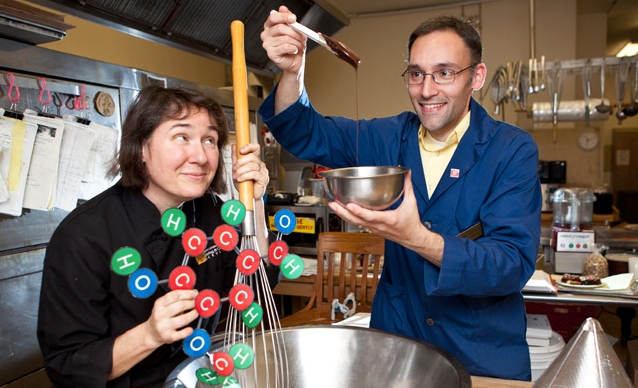
October 27, 2011 Four years ago, Assistant Chemistry Professor Justin Lytle started the “Chemistry of Food” series with Erica Fickeisen, lead baker with PLU’s Dining and Culinary Services.(Photo by John Froschauer) The right recipe for fun and learning The recipe for how Assistant Professor of Chemistry Justin Lytle teaches looks a little like this: Add two-parts enthusiasm and a love of teaching, one-part knowledge of the sciences, and a heaping scoop of passion for the chemistry of food. Then
-
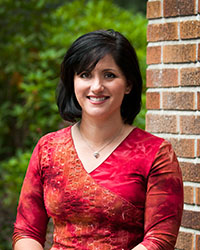
“establishing justice” or “the blessings of liberty” found in the Preamble to the Constitution do not yet apply to everyone who lives in America. And so they challenge us to move away from punitive treatment of DREAMers, lifelong residents who were brought to the United States as children and raised here. Because now, these millions of undocumented youth are caught in a restrictive legal limbo. In her latest book “Living the DREAM: The Stories of Undocumented Latino Youth,” PLU professor Maria Chávez and
-

work of repertoire in North America. They get to work with one of the world’s best-known conductors and one of the best-known composers of modern repertoire. There is great value in learning to collaborate on such a large scale and in such a visible setting. And I believe ultimately all the performers will be moved by the music and its connection to the story. The SOAC focus this year is on storytelling. What do you think this concert has to say about the art of communicating? We’re telling the
-

degrees in education from PLU before teaching in Tacoma Public Schools. Throughout her life, she was an advocate for her Nisqually people and other Salish tribes, focusing on Indigenous education, preserving Indigenous history, and revitalizing Nisqually culture, spirituality, and arts. Svinth Carpenter’s work was deeply rooted in this region, located in the watershed of Mount Tacobet/Tahoma/Rainier — the Mother of All Mountains — which also served as the inspiration for one of her books, Where the
-
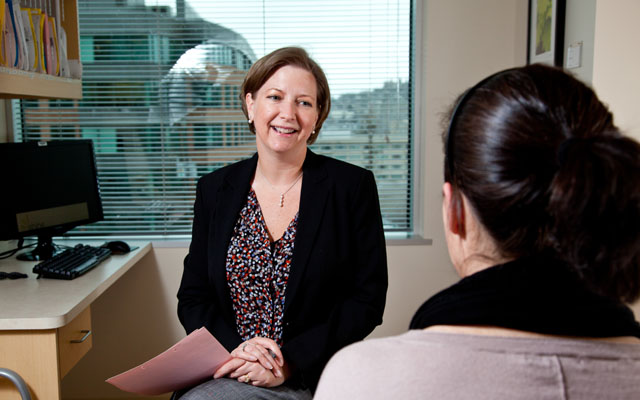
. She sees patients at the Seattle Cancer Care Alliance and has a joint appointment at the Fred Hutchinson Cancer Research Center. She’s researching new treatments to battle breast cancer, specifically “triple-negative” breast cancer that is an aggressive type more likely to metastasize and for which there are fewer treatment options. For Specht, her journey started with her family’s deep Lutheran roots in Kelso, Wash. She knew she was probably going to attend PLU and study science after attending
-
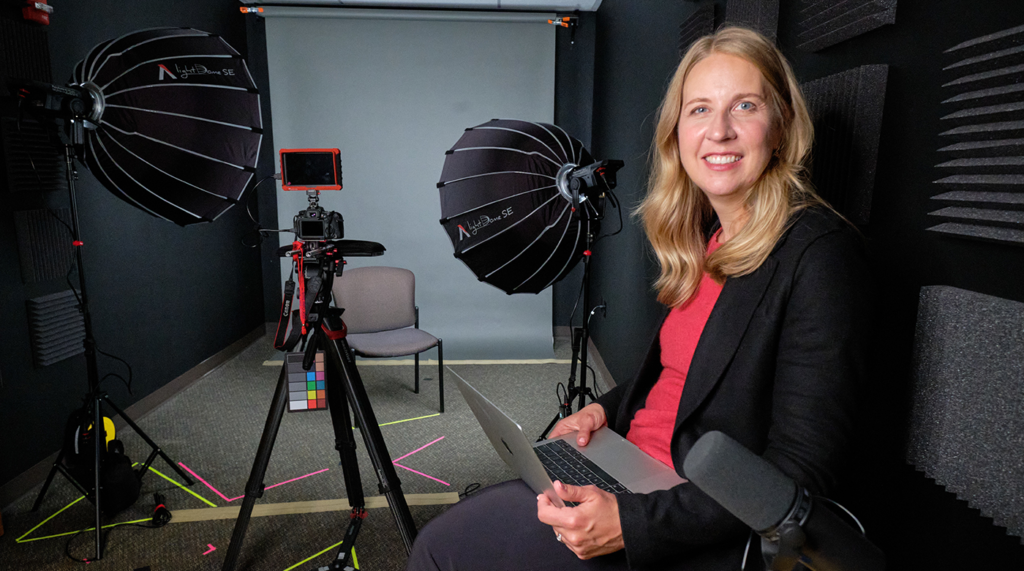
replaced monthly in-person meetings, eliminating travel time for administrators from throughout a five-county area in southwest Washington. “There’s not the urgency that there was two years ago,” Jaudon says. “But we continue to meet as a region. People keep showing up and they continue to see value in networking with each other.” A legacy Lute whose parents graduated in 1969, Jaudon learned from them that higher education isn’t just about learning job skills. “My dad told me not to worry about a
-

TACOMA, WASH. (March 23, 2016)- Imagine using bananas and a circuit board to create a piano. Absurd? Thanks to the maker movement and some creative minds, it isn’t. Pacific Lutheran University’s School of Education & Kinesiology is bringing that creative spirit to campus April 12…
? Thanks to the maker movement and some creative minds, it isn’t. Pacific Lutheran University’s School of Education & Kinesiology is bringing that creative spirit to campus April 12 in the form of a hands-on workshop and free public lecture.The seventh annual Benson Lecture, “A Learning Revolution Goes to School: The Maker Movement,” will focus on the growing trend in which creators use so-called “makerspaces” and “fablabs” to invent and create products. More specifically, speakers will discuss how the
-
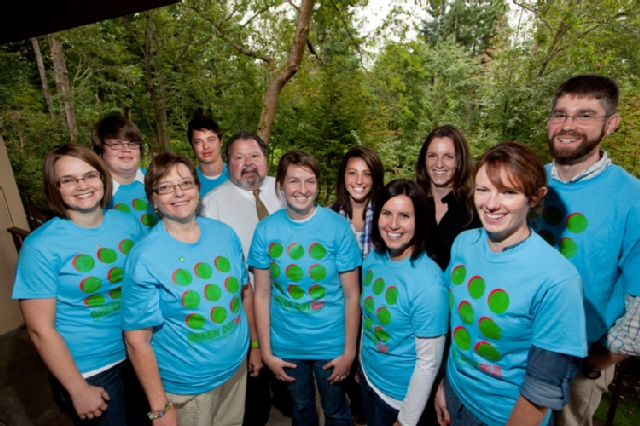
. “All the things that help make our community safer are made possible through this grant funding,” said Bobbi Hughes ‘00, director of the Women’s Center. “We’re really a leader in making the community safer.” This is the third time the center has applied for and received the funding, formally called “The Grant to Reduce Sexual Assault, Domestic Violence, Dating Violence and Stalking on Campus,” which is awarded specifically to colleges and universities that address and prevent intimate partner
-
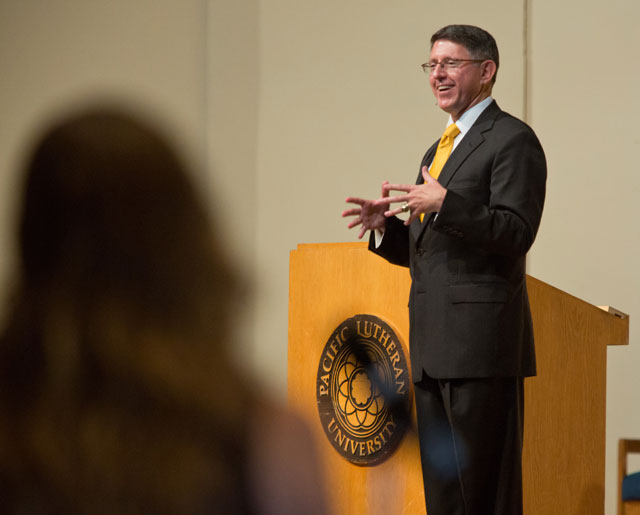
scholarship not only for its own sake (and we do that too) but also for the value we gain from having people hear about the work that our faculty and staff do so well here. We need to energize our natural constituencies such as our alumni, our retired faculty and staff, our supporting congregations and synods of our Region One of the Evangelical Lutheran Church in America, our partners in the community, in various groups and associations—and we need to give them narratives to tell. For those of us who
-

TACOMA, WASH. (Oct. 26, 2016)- Roche Harbor, Washington, sits on the northwest side of San Juan Island at the edge of the Canadian border. For one week over the summer, Roche Harbor served as a site of discovery for a handful of Lutes interested in…
.” Taylor says glass bottles specifically help illuminate the routines of historical peoples by highlighting “what were they eating or drinking, or products they were using.” Grant Schroeder ’17 also participated in the workshop and decided to use chemistry to further discern past activities on the site. Schroeder spent the week collecting soil samples from various areas around the homestead and plans to run chemical tests on the samples to determine how residents used the land. He hopes results will
Do you have any feedback for us? If so, feel free to use our Feedback Form.


